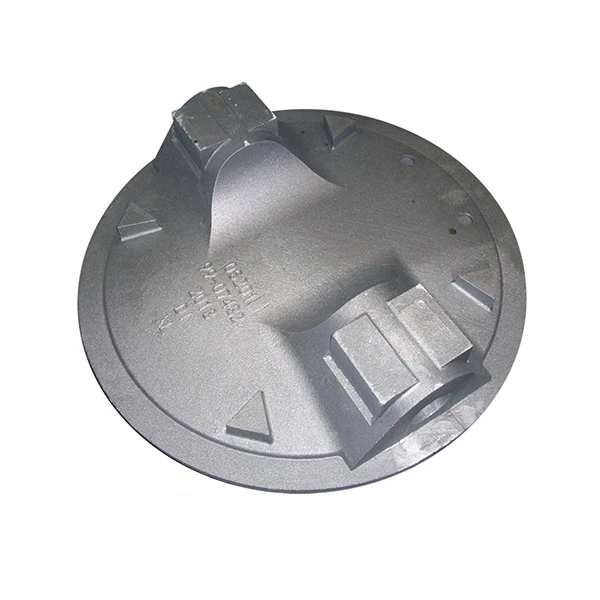Mobile:+86-311-808-126-83
Email:info@ydcastings.com
aluminium alloy die casting
Aluminium Alloy Die Casting An Essential Manufacturing Process
Aluminium alloy die casting is a widely used manufacturing process that plays a crucial role in the production of high-quality metal components. This method involves pouring molten aluminium alloy into a pre-designed mold, where it solidifies to form intricately shaped parts. This article will explore the benefits, applications, and considerations associated with aluminium alloy die casting.
One of the primary advantages of aluminium alloy die casting is its ability to produce complex shapes with high precision. The process allows for tight tolerances, which means the finished components can meet exact specifications. This is particularly important in industries such as automotive, aerospace, and electronics, where dimensional accuracy is critical for the functionality of parts. Additionally, the smooth surface finish that can be achieved through die casting reduces the need for extensive post-processing, thereby saving time and reducing manufacturing costs.
Another notable benefit of using aluminium alloys in die casting is their excellent strength-to-weight ratio. Aluminium is lighter than many other metals yet possesses substantial durability, making it an ideal choice for applications where weight reduction is essential without compromising structural integrity. For instance, in the automotive industry, lighter components can significantly enhance fuel efficiency and overall vehicle performance. Similarly, in aerospace applications, reducing weight can lead to increased payload capacity and improved energy efficiency.
The versatility of aluminium alloys adds to their attractiveness for die casting. There are numerous aluminium alloys available, each offering distinct mechanical properties and corrosion resistance characteristics. Commonly used alloys include 380, 383, and 413, which exhibit excellent fluidity and can be easily molded into complex geometric forms. This versatility enables manufacturers to select the appropriate alloy for specific applications, whether they require higher thermal conductivity, improved corrosion resistance, or enhanced mechanical strength.
aluminium alloy die casting

Moreover, aluminium alloy die casting is an environmentally friendly manufacturing process. Aluminium can be recycled multiple times without losing its inherent properties, making it a sustainable choice for many industries. The recycling process uses significantly less energy compared to the extraction and processing of virgin aluminium. Therefore, by utilizing recycled aluminium alloys in die casting, manufacturers can reduce their carbon footprint and contribute to environmental sustainability.
In terms of applications, aluminium alloy die casting is prevalent across various sectors. In the automotive industry, it is commonly used to produce engine blocks, transmission housings, and structural components. The aerospace sector also benefits from this technology, as components like aircraft frames and brackets are often manufactured using die casting techniques. Additionally, consumer electronics such as smartphones and laptops frequently incorporate die-cast aluminium parts for their lightweight and durable enclosures.
Despite the many advantages, there are considerations to keep in mind when employing die casting. The initial cost of creating the die can be high, making it less economical for small production runs. However, for large-scale production, the cost per part decreases significantly, justifying the initial investment. Furthermore, the choice of alloy and design complexity can influence both the cost and the performance of the final product.
In conclusion, aluminium alloy die casting is a vital manufacturing process that offers numerous benefits, including precision, lightweight strength, versatility, and environmental sustainability. Its applications span various industries, making it a popular choice for producing high-quality components. As technology advances and the demand for efficient and sustainable manufacturing practices grows, aluminium alloy die casting will likely continue to evolve and play an essential role in modern manufacturing.
-
Impeller Technology That Powers Precision in Pump SystemsNewsMay.22,2025
-
Valve Durability Begins with Quality Cast Iron ComponentsNewsMay.22,2025
-
Performance Cooling with Advanced Automobile Water Pump SolutionsNewsMay.22,2025
-
How Motor Housing and Oil Pans Shape Engine PerformanceNewsMay.22,2025
-
How Metal Castings Drive Modern Manufacturing EfficiencyNewsMay.22,2025
-
Exploring the Engineering Behind Valve Body CastingsNewsMay.22,2025











